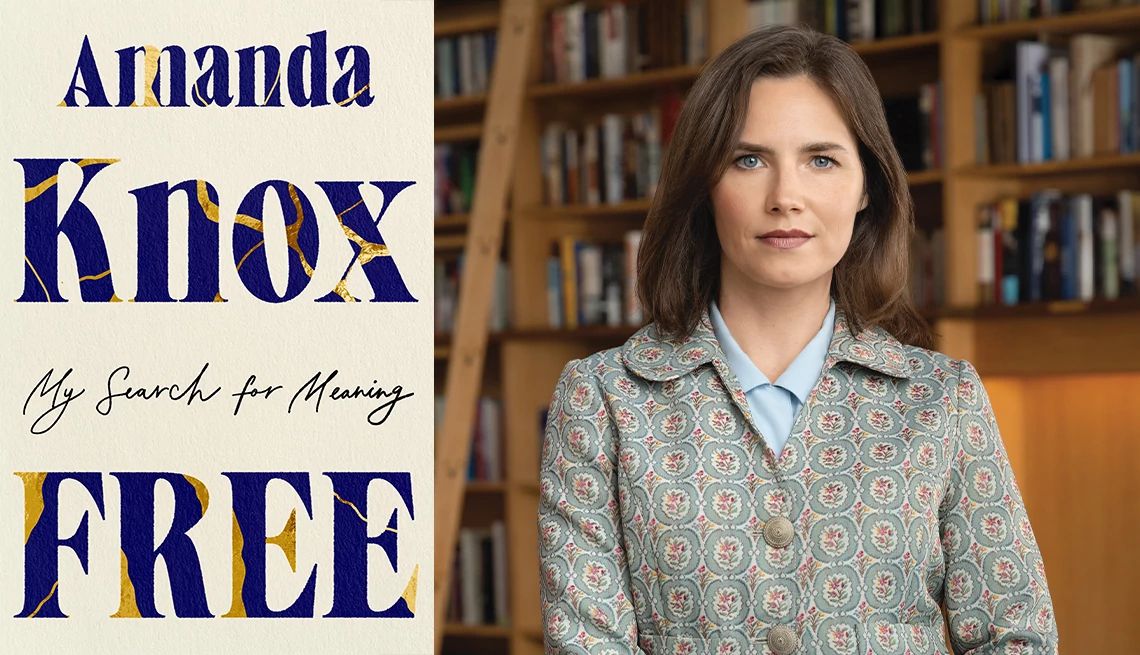AARP Hearing Center


She’s only 37, but Amanda Knox has wisdom beyond her years after being subjected to incredible injustice and suffering — a long, painful journey that began when she was wrongfully accused of murdering her roommate while she was studying abroad in Perugia, Italy, in 2007.
Within days, Knox went from being a slightly goofy, outdoorsy, book-loving college student to international tabloid fodder known as Foxy Knoxy (her Italian boyfriend at the time, Raffaele Sollecito, was also unjustly imprisoned but received far less media attention). Prosecutors were fixated on Knox as a deviant into dangerous sex games, with no reasonable evidence, and after a sensational trial, she was slapped with a 26-year prison sentence. That was overturned after about four years, but the Italian court continued to insist on her guilt. She was re-convicted in 2014, then exonerated again in 2015.
At the same time, Rudy Guede, the real killer of Knox’s roommate, Meredith Kercher (his DNA was found at the crime scene), was largely ignored by the media. Guede spent 13 years behind bars for the murder.
So, what’s it like to be imprisoned for four years (when you’re prone to claustrophobia, no less) and vilified across the globe for a crime you didn’t commit? And what good could possibly come from it?
Knox’s moving new book, Free: My Search for Meaning (March 25), answers those questions with heart-wrenching frankness. She revisits the trial, conviction, and years in prison but also offers an eloquent recounting of her experiences since returning to the U.S. Back in Seattle, she desperately tried to piece her life and sense of self together, even while Italian prosecutors relentlessly continued to revisit the case with a bizarre passion and haters threatened her with torture and death.
She describes how she learned to cope with the pain, make meaning out of her misfortune, and develop a perspective on suffering that has allowed her to forgive her main accuser. Now she’s married with a young daughter, Eureka, and she and her husband, Christopher Robinson, host a podcast, Labyrinths, together that focuses on “stories of getting lost and the resilience and personal growth it takes to find your way again.”
There are lessons in Knox’s story that are particularly relevant to anyone facing hard times. Here are some.


1. Live in the present.
When she was first imprisoned in Italy’s Capanne prison with a 26-year sentence, Knox had a dark period where she obsessed over how she might kill herself (slitting her wrists would be best, she decided). Eventually, she chose to live — otherwise, she writes, “lies would win the day.” She realized she had to make this life worth living: “The present was all that existed, as imperfect as it might be.” Knox found solace in books (she was allowed three at a time) — “they were my therapists and my gurus “ — particularly Man’s Search for Meaning, Viktor Frankl’s account of life in a concentration camp (“the closest thing I had to a ‘How to Survive Prison’ manual,” she calls it).








































































More From AARP
New Bio Offers Fascinating Insights Into Life of Yoko Ono
Author David Sheff explores the remarkable story of the artist and controversial John Lennon muse
Martha Stewart’s Perennial Advice for Gardeners
‘Martha Stewart’s Gardening Handbook’ is an Essential Guide to Designing, Planting, and Growing
I Arranged a Weekend Getaway Just to Read ‘Onyx Storm’ (Yes, It's for Grownups!)
There’s a reason Rebecca Yarros’ latest romantasy is the fastest-selling adult novel in decades